
Hailed as the mother of civil rights in California, Mary Ellen Pleasant was a self-made millionaire and leading abolitionist during the Gold-Rush era.
According to some historians, Pleasant likely played a key role in helping to finance John Brown’s raid on Harpers Ferry in Virginia, an unsuccessful revolt by black slaves and white abolitionists in 1859. Pleasant also gave shelter to fugitive slave Archy Lee when he was on the run. Research indicates that Pleasant was most likely born a slave but got her freedom at an early age. She worked on the Underground Railroad as a young adult, ushering enslaved people out of the south and into the northern states. Like many others seeking their fortunes during the Gold Rush, Pleasant and her husband moved to San Francisco. While working as a cook, Pleasant eavesdropped on the conversations of wealthy patrons in the hopes of overhearing valuable nuggets of information. She took what she learned to help her build a substantial fortune and eventually became one of the richest women in the city. Pleasant was an astute investor whose portfolio included real estate, railroads, restaurants, and boarding houses. Pleasant’s wealth, however, could not shield her from racism. In 1866, a street car conductor in San Francisco refused to let her board because she was black. Outraged, Pleasant sued. The case went all the way to the California Supreme Court. In a historic decision, the court ruled that segregation on streetcars was illegal in California. However, the supreme court reversed the damages Pleasant had been awarded in a lower court ruling.
Pleasant’s wealth, however, could not shield her from racism.
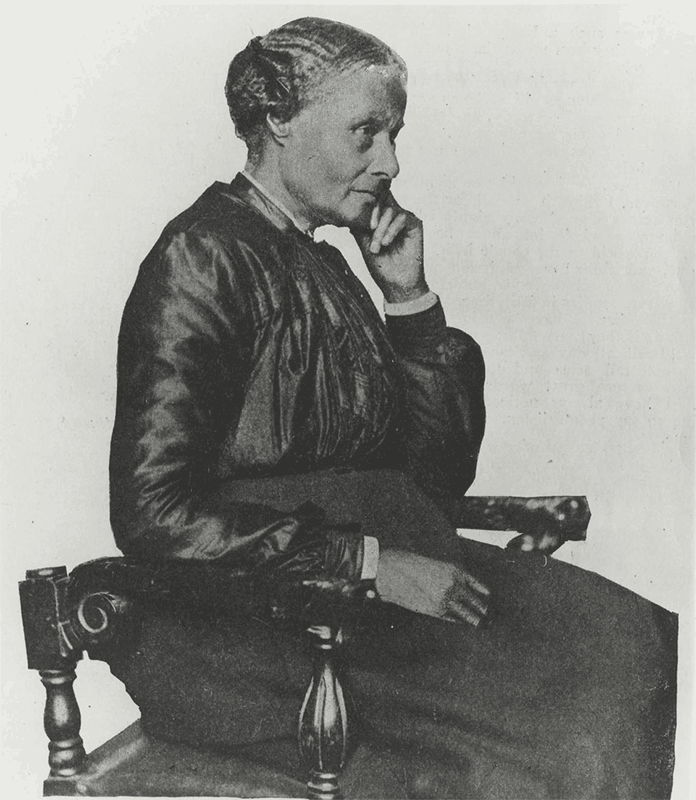
Profile photo of Mary Ellen Pleasant, early African American businesswoman, c. 1860's
Courtesy: CSU Archives / Everett Collection
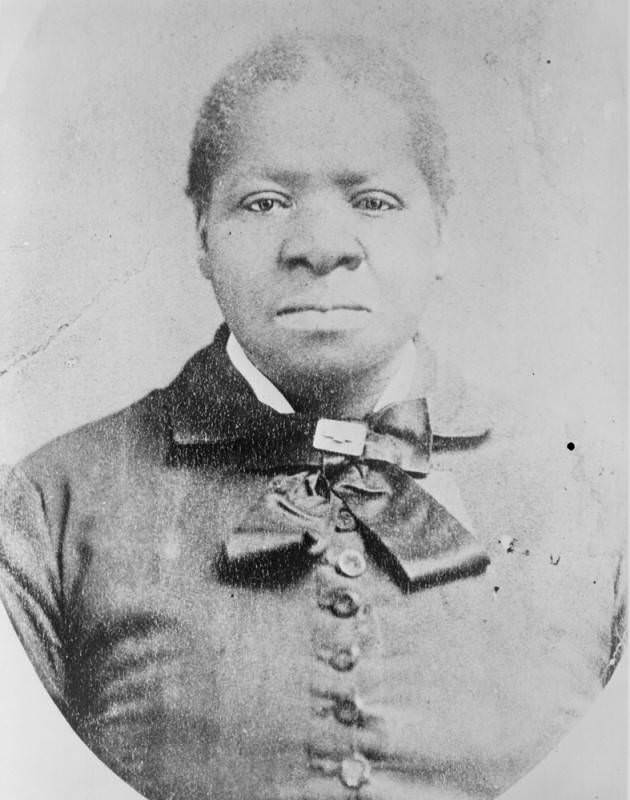
Bridget “Biddy” Mason was brought as a slave to California. When she learned of her legal rights, she sued for freedom for herself and her family and won, in what became a landmark court case.
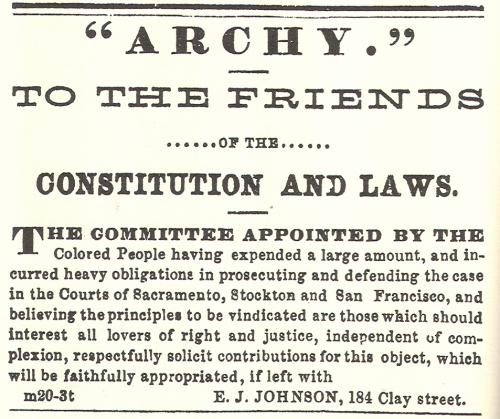
In one of the most celebrated fugitive slave cases in California, Archy Lee, a young black man who had been brought to the state from Mississippi, escaped and waged a successful legal battle for his freedom that went all the way to the federal courts.
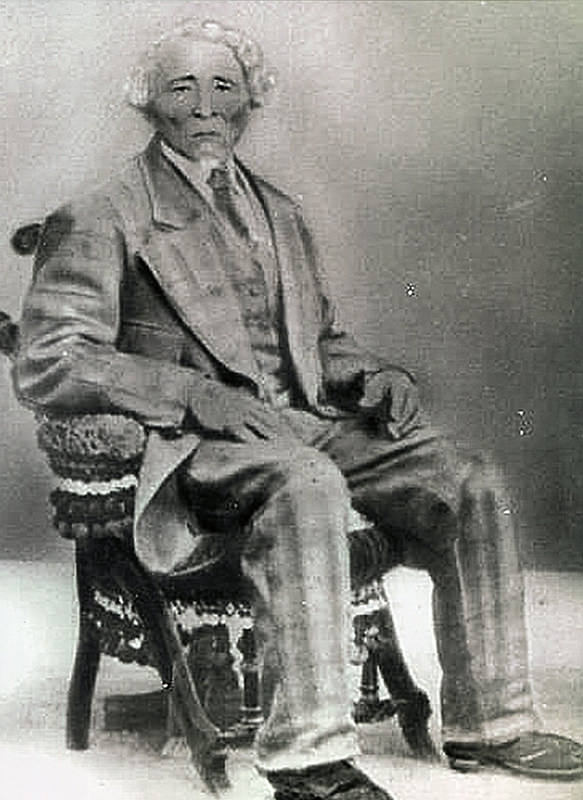
After purchasing his freedom, Edmond Wysinger filed a historic lawsuit that made it illegal for California public schools to ban black students.
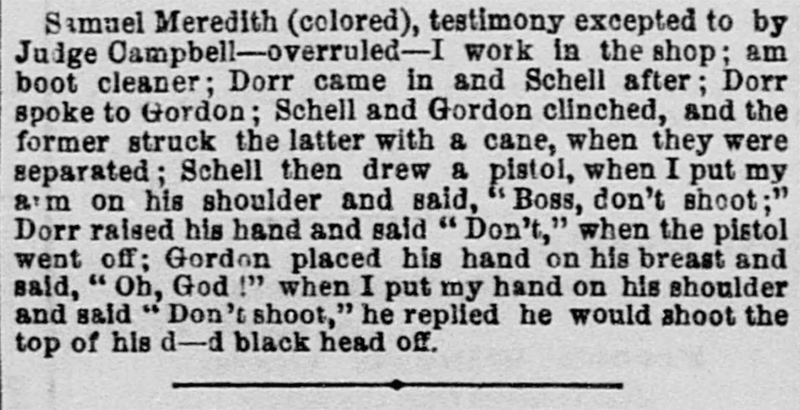
George Gordon, a black barber was shot to death by a white man in full view of witnesses in his San Francisco shop. A judge refused to allow the testimony of blacks because of their race. The killer got a lighter sentence as a result.
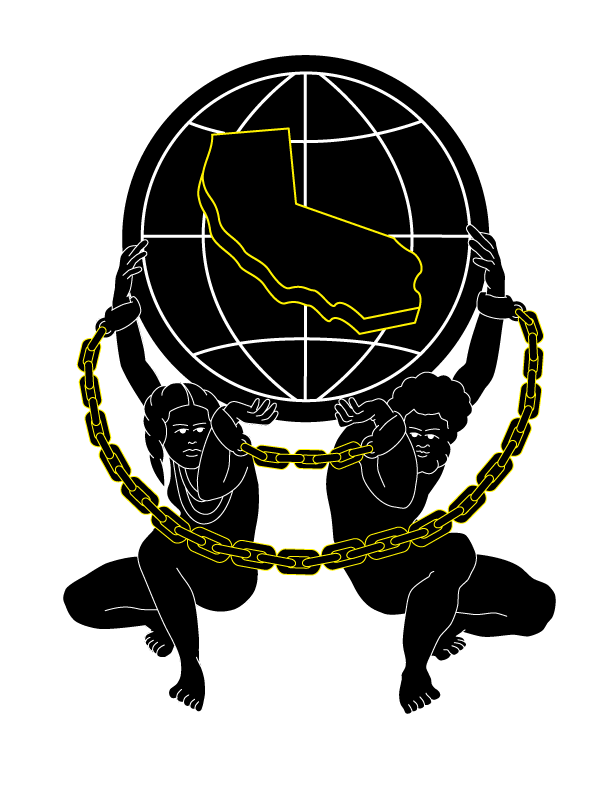
The mission of Gold Chains is to uncover the hidden history of slavery in California by lifting up the voices of courageous African American and Native American individuals who challenged their brutal treatment and demanded their civil rights, inspiring us with their ingenuity, resilience, and tenacity. We aim to expose the role of the courts, laws, and the tacit acceptance of white supremacy in sanctioning race-based violence and discrimination that continues into the present day. Through an unflinching examination of our collective past, we invite California to become truly aware and authentically enlightened.